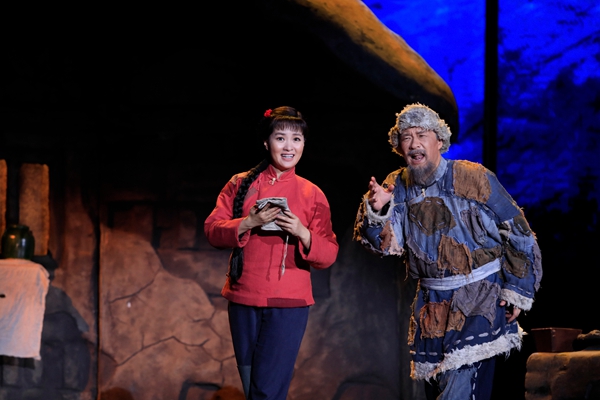Reframing the classics
By Wang Kaihao | China Daily | Updated: 2019-11-07 08:29

Modern connections
In preparation for the series, the production team searched for comments by young netizens on these classics to look for elements in the old works that made them feel a connection.
And the main challenge for the adaptation was thrown to Tian Qinxin, a veteran drama director from the National Theatre of China. For each episode, she had to turn the key scenes from these household stories into a stage production lasting no longer than half an hour.
"It was a fresh experience to use social media as a new way of guiding audience toward plays," she says. "To mark the 70th anniversary of the founding of New China, the national theater developed a program to remake the classic films made between 1949 and 1966. Coincidentally, the idea for China in Stories echoed with ours, and offered a broader platform for performance."
To attract new viewers, who may not be so familiar with the stories of their parents' generation, Tian also endeavored to break the stereotypes of drama as a highbrow art form enjoyed by a small circle of enthusiasts. Other than the actors and actresses from the National Theatre of China, a group of popular stars from TV and film were invited to join her cast.
And Tian divided the stage into three separate spaces, envisaging the main stage for the performance of major scenes, while the two smaller stages were designed to look like film sets to offer a familiar environment for the actors to adopt screen acting methods and emphasize detail.
"We didn't want overwhelming dramatic effects found in orthodox plays, like long monologues," the director explains. "It's better to mix plays and filmmaking together and make our expressions approachable when concentrating the classics down into short acts."
Scenes dealing with romance and human relationships which were neglected in the original productions in favor of themes of collectivism, are played up in Tian's version to have more of an emotional resonance with younger generations.
In the program, she also includes behind-the-scenes footage, ranging from script read-throughs to live rehearsals.
"We wanted to show how meticulously our plays are made to reflect our respect for history," Tian says.
And her attempts have paid off. On review site Douban, China in Stories received a rating of 8.5 points out of total 10.
One comment gaining the most "likes" reads: "Many classics have been forgotten by time. When we pick them up again, they are not only stories any more. They reflect our respect for our predecessors and an appreciation for the good life we enjoy today."
























